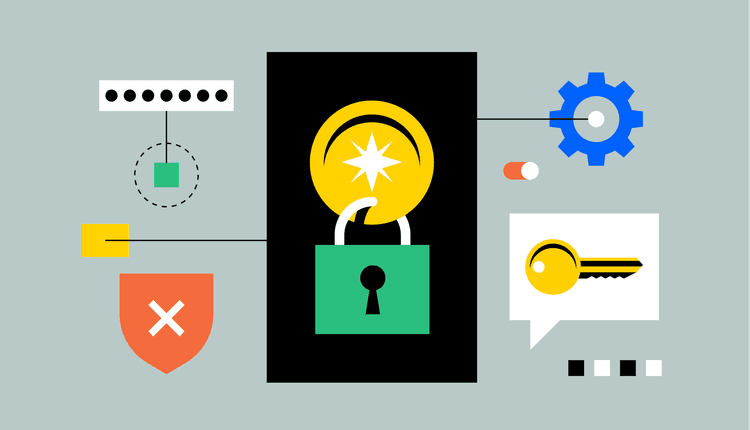
BEGINNER’S GUIDE
by: Towqeer gilkar

How to Safely Store and Protect Your Crypto Assets
Cryptocurrencies offer a new frontier in financial freedom and innovation, but with this empowerment comes the responsibility of safeguarding your digital assets. The decentralized nature of cryptocurrencies means that security is primarily in the hands of the user. Here are essential tips on how to safely store and protect your crypto assets:
**1. Use Hardware Wallets:
- Hardware wallets are physical devices designed specifically for the secure storage of cryptocurrencies. These wallets store private keys offline, making them immune to online hacking attempts. Popular hardware wallets include Ledger and Trezor. Investing in a hardware wallet is a prudent step to safeguard your crypto holdings.
**2. Enable Two-Factor Authentication (2FA):
- Two-factor authentication adds an extra layer of security to your accounts. Enable 2FA wherever possible, especially on exchanges and wallets. This usually involves receiving a code on your mobile device that you must enter along with your password. It provides an additional barrier against unauthorized access.
**3. Choose Reputable Wallets and Exchanges:
- Opt for well-established wallets and exchanges with a proven track record of security. Research and read reviews to ensure the platform employs robust security measures. Consider factors such as cold storage, encryption, and regular security audits when selecting where to store and trade your crypto assets.
**4. Implement Cold Storage:
- Cold storage involves keeping your private keys completely offline, making it immune to online hacking attempts. Hardware wallets are a form of cold storage, but you can also use paper wallets or air-gapped (offline) computers for added security. Ensure your cold storage solutions are kept in a secure physical location.
**5. Regularly Update Software:
- Keep your wallet software, operating system, and antivirus programs up to date. Software updates often include security patches that protect against the latest threats. Neglecting updates may expose vulnerabilities that could be exploited by malicious actors.
**6. Secure Your Private Keys:
- Your private key is the key to your crypto kingdom. Never share it with anyone, and be cautious about storing it digitally. Consider using a secure physical backup, such as a hardware wallet or a paper wallet stored in a safe place. Avoid taking screenshots or photos of your private keys.
**7. Educate Yourself on Phishing Scams:
- Be vigilant against phishing scams that attempt to trick you into revealing your private information. Double-check URLs, emails, and communication from wallet providers and exchanges. Avoid clicking on suspicious links and never enter your private keys on unfamiliar websites.
**8. Diversify Storage Locations:
- Consider diversifying your storage locations. Avoid storing all your crypto assets in one wallet or on a single exchange. Distributing your holdings across multiple wallets and platforms reduces the risk of losing all your assets in case of a security breach.
**9. Create a Secure Backup:
- Regularly back up your wallet's information. Store these backups in multiple secure locations, and ensure they are encrypted and password-protected. In the event of device failure or loss, a secure backup ensures you can recover your funds.
**10. Plan for the Future:
- Consider creating a detailed plan for your crypto assets in case of unforeseen events. This plan might include instructions for your heirs or trusted individuals on how to access and manage your assets in the event of your incapacitation or passing.
Securing your crypto assets requires a proactive approach and constant vigilance. By implementing these security measures, you can significantly reduce the risk of unauthorized access and protect your digital wealth in the dynamic world of cryptocurrencies.
Related Blogs
Our great way to help make people keep working for us is to invest in their overall job satisfaction by providing them with the perks and benefits they want most.




